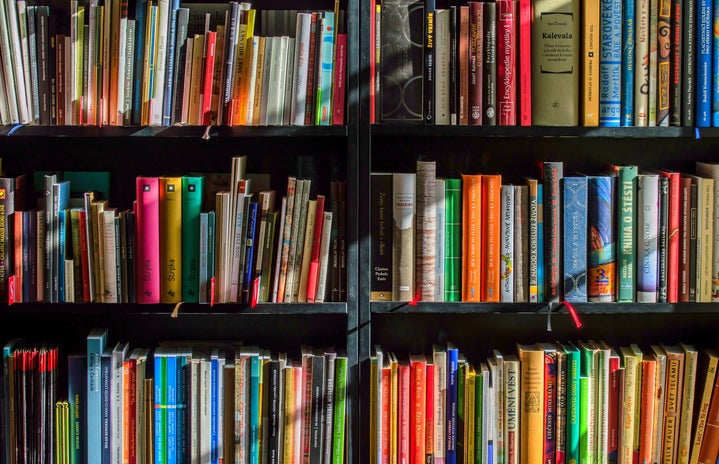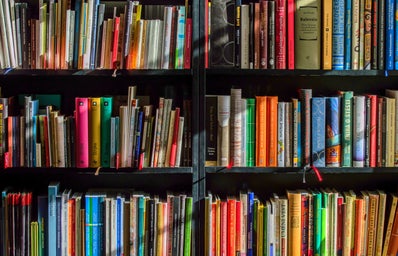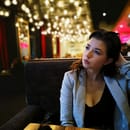I study English Literature and Creative Writing. After a while of being in the program, my grandma (a literature enthusiast and book club attendee) asked me if we had studied any female authors or if it was all English male authors. This was the first time it dawned on me that literature, being a representation of culture, history, philosophy, and so much more, was an art for every single person and voice. Without me even knowing it, I went into the program my first year expecting what I had seen depicted in movies and other portrayals of art and literature students – everyone studying the wise words of influential men.
What I didn’t expect to study (and now truly value) were the works of Kate Chopin, Alice Munro, H.D., Gertrude Stein, Aphra Behn, and so many more influential women. I didn’t expect not to read female authors, but I didn’t think I would be reading so many and that there would be a purposeful focus on female writers in specific courses.
More than that, I didn’t expect to read Indian texts, African-American voices, Japanese literature, and other works from cultures that colour the world with valuable insight, opinions, creativity, rhythm, and humour. There is so much to gain from the voices of those who live very different lives than that of what we’ve experienced, or than that of what we grew up reading. We can’t presume that the white male voice could ever possibly know everything and be able to represent art as a whole.
I realized that, when studying female authors, there is a huge topic focus on feminism. It’s important to educate everyone in the class – male and female – on the history of the feminist movement as well as key characters that played major roles in that era. Writing as a woman, even if accepted (depending on the era and country), was still vastly different from writing as a male. Often it was seen as a hobby or a talent without any real belief in the ambition of the female writer. Contrary to this, the male writers were experienced and were thought to be doing serious work. Many female authors were self-taught, as formal education either wasn’t available or wasn’t seen as applicable to women, which should actually prove that they were climbing an uphill battle toward writing because it was so important to them. What they felt they needed to say was so valuable to them, they fought the odds to write it and make it known. That, to me, makes their work more impactful and purposeful than a rich man’s letter to a muse.
However, I realized in a topics course on Modern Women Poets that there was an expectation, especially from the female students in the class, that all work should be blatantly feminist. Every rose would represent a woman, and every agony would be the oppression of the patriarchy. They projected onto the works their belief that a woman author, especially one who grew famous (thus we’re studying them) must make use of the soap box they were standing on and preach of the trials of the female. Whenever we would run into something that wasn’t feminist-driven, those students were disappointed. There was this unsaid, underlying feeling that the female writer wasted her time in fame if she did not promote her female voice but rather simply her human voice. That was the moment I realized feminism is so intricately complex that, when a female is successful talking about non-feminist issues, we still feel that she has not fully succeeded. She then becomes a tool to be used in the feminist movement instead of granting her creative freedom and full equality of voice.
I think everyone should take the time to read Adrienne Rich’s article “When We are Dead Awakening” as it does more justice to this topic than I ever will. Rich was an American poet writing in the mid-20th century. She discusses the complex notion of the Woman character that men write about and make famous, which we eventually internalize as something a woman ought to be. Yet, when a woman writes and reads, she is left feeling like her multifaceted self (as real women are not always superficial and have more than one ambition in life) is not found in the literature token Woman. All this is to say that an accurate depiction of females was lacking and therefore gets internalized by society (in sociology, this is called the sociological imagination).
I find this to be a true statement, even today. How many young adult fictions have you read about a boy hero with a male best friend and the one girl in the group who has, at the root, the same personality and motives as every other book’s depiction of this character? How many times have you read about the archetypal heroine who is missing a parent and wants to protect a younger sibling but can’t control her powers/strengths so there is a male love interest that teaches her how to do things right? Though these aren’t inherently awful depictions, the lack of variety seems to assume that a woman has one level of depth and that there is basically only one path a woman with a troubled life can walk down and that there must always be a male to help her. The thoughts and emotions of the female characters are often superficial, one-directional, and short-lived. Not to mention that a lot of depictions of females are written by males, and therefore have to be unrealistic because most men can’t actually get into the complicated headspace of a woman because he has not lived or ever experienced the rich and dark history of the feminine experience.
The complex female characters and the more frequent and inspiring dialogue of the female character is something we have all longed for for centuries. Now we look at the amount that male characters speak more than female characters in most films. Along with that, we long for a woman who doesn’t suit an archetype. We hope for actresses who look like real women of varying backgrounds. We look for ourselves in art, and it is rare that we find it there. There lies the importance of the female voice in any art medium.
I suppose my hope for the long-term future is that, when studying female writers, we won’t read their works solely as the voice of an oppressed heroine, but rather as an artist with a clear and equal voice, vocalizing an image or idea she simply enjoys or believes in, without having to justify why she is more qualified to state that opinion over the voice of a man. Though the dignified role of the woman is valued separate from the role of a man, I imagine a future where we don’t preface the reading of a female’s work to take into consideration that she is a she and therefore different from a “traditional” writer. Her work won’t be a feminist alternative to a man’s work. It won’t simply be a branch off of a tree that patriarchy claimed.
As I said before, Rich says everything much better than I, so I would like to leave you with an excerpt of her aforementioned article:
“If we have come to a point when this balance might begin to change, when women can stop being haunted, not only by ‘convention and propriety’ but by internalized fears of being and saying themselves, then it is an extraordinary moment for the woman writer-and-reader.”
The representation of females is considerably good, especially at UWindsor. We have many female professors who are qualified to teach the complex narrative of the female voice. I think there are valuable changes that have been made since my grandma was in school and since my father studied English Literature. We are on an upward route, but there is so much more we can accomplish.


